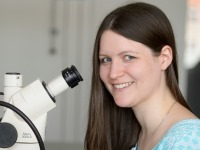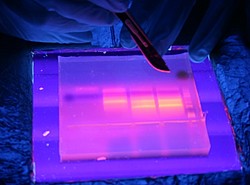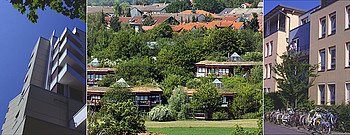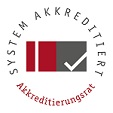Biology (Master’s)
Study Life!
Biology (Master’s)
Study Life!
Practical research work in direct contact with instructors is the hallmark of the University of Hohenheim’s program in Biology and is an ideal preparation for a career in research. In Hohenheim, you determine the structure of your studies. You can study the entire breadth of biology or concentrate on one of our many sub-disciplines.
- Modern fields of specialization: Biodiversity and Integrative Taxonomy
- Biomolecular Interactions
- Adaptation of Plants to their Environment
- Interaction Plants/Insects
- Reasons to Choose Hohenheim
| Degree Master of Science (M.Sc.) |
4 semesters 120 credits |
Language German |
University places 30 |
Location Stuttgart |
|||||
More information about the individual modules can be found in the module catalog.
In the first year of studies,
the courses are offered in blocked modules each lasting four weeks. Each semester you will usually take four modules. The examinations - e.g. in the form of semester assignments, protocols, colloquia, or written exams - are usually done at the end of each module. You can choose the semi-elective modules from all of the modules offered in the degree program, concentrating on a certain specialization or studying the whole range of biology. You can take the elective module from any Master’s program at the University of Hohenheim.
The second year of studies
is characterized by a research lab or a stay abroad, by obtaining key qualifications in the context of the module “Personal Competence,” and the Master's thesis. In the research internship, the scientific, practical project work in the lab and/or outside is the focus. You will learn and apply all aspects of scientific work practically. You have the opportunity to complete your research lab abroad.
With the final Master's thesis in the fourth semester, you show that you are able to work independently in a scientific way in biology.
Angela Prager (Student, Master’s program Biology)

"Practical teaching and excellent research opportunities make the historic campus of the University of Hohenheim the perfect place to study biology."
- Private and public research facilities, especially in biological and biomedical fundamental research
- Research and development, e.g. in the biotech, pharmaceutical, and food sectors
- Botanical and zoological gardens, museums
- Environment and nature protection, regional planning
- Journalism (media and publishing houses)
- Public service
- Consulting agencies
- Excellent supervision due to small cohorts
- Research-oriented study programs
- Connection of research and practical work
- Superb laboratories and internship facilities with equipped cutting-edge technology
- The opportunity to choose from the entire range of courses offered at the Faculty of Natural Sciences of the University of Hohenheim
We recommend that you study a semester abroad during your study program and will be happy to help you with this. The University of Hohenheim is a member of the European university network ELLS. In addition to exchange semesters at other partner universities, the network also offers intensive programs, summer schools, and a “marketplace for Master’s theses”. Of course, you can also extend your period of study and use the additional time to go abroad.

The Biology program is closely intertwined with current research projects in the departments of the Institute of Biology. Within the university, biology has a strong relationship with other disciplines; special attention is given to our collaborations with the Institute of Food Science and Biotechnology, as well as the nutritional science institutes (Nutritional Sciences & Clinical Nutrition). In addition, we also cooperate with the agricultural and economic sciences. With our expertise in the sub-disciplines of botany, zoology, animal physiology, genetics, microbiology, plant physiology, molecular biology, biochemistry as well as systems biology, we cover a wide range within biology. In addition, we are expanding our expertise in biology with the appointment of new professorships in biodiversity research and integrative taxonomy.
Core research areas
- Biodiversity and Integrative Taxonomy
- Biomolecular Interactions
- Adaptation of Plants to their Environment
- Interaction Plants/Insects
Cooperation agreements
With the aim of further expanding our successful research projects and achieving sustainable synergy effects, we maintain intensive cooperation with our excellent partners:
- University of Stuttgart
- University of Tübingen
- Stuttgart Museum of Natural Science
- State Health Office of Baden-Württemberg
- Margarete Fischer-Bosch Institute for Clinical Pharmacology at the Robert Bosch Hospital
- National and international research institutions.
| Application deadlines | |
|---|---|
| 1st subject-related semester | only for the winter semester: 15 June Germans, EU citizens, holders of a German university entrance qualification (Bildungsinländer), and non-EU citizens |
Higher subject-related semesters | for the winter semester: 15 June |
| Requirements | |
|---|---|
| Formal requirements | Bachelor's degree with biological or natural science profile (min. 180 credits) |
| Content criteria | Interested in
|
| Language skills | German C1 English B2 |
| Pre-study internship | no |
| Selection procedure | |
|---|---|
| Selection criteria |
|
| Selection interview | no |








